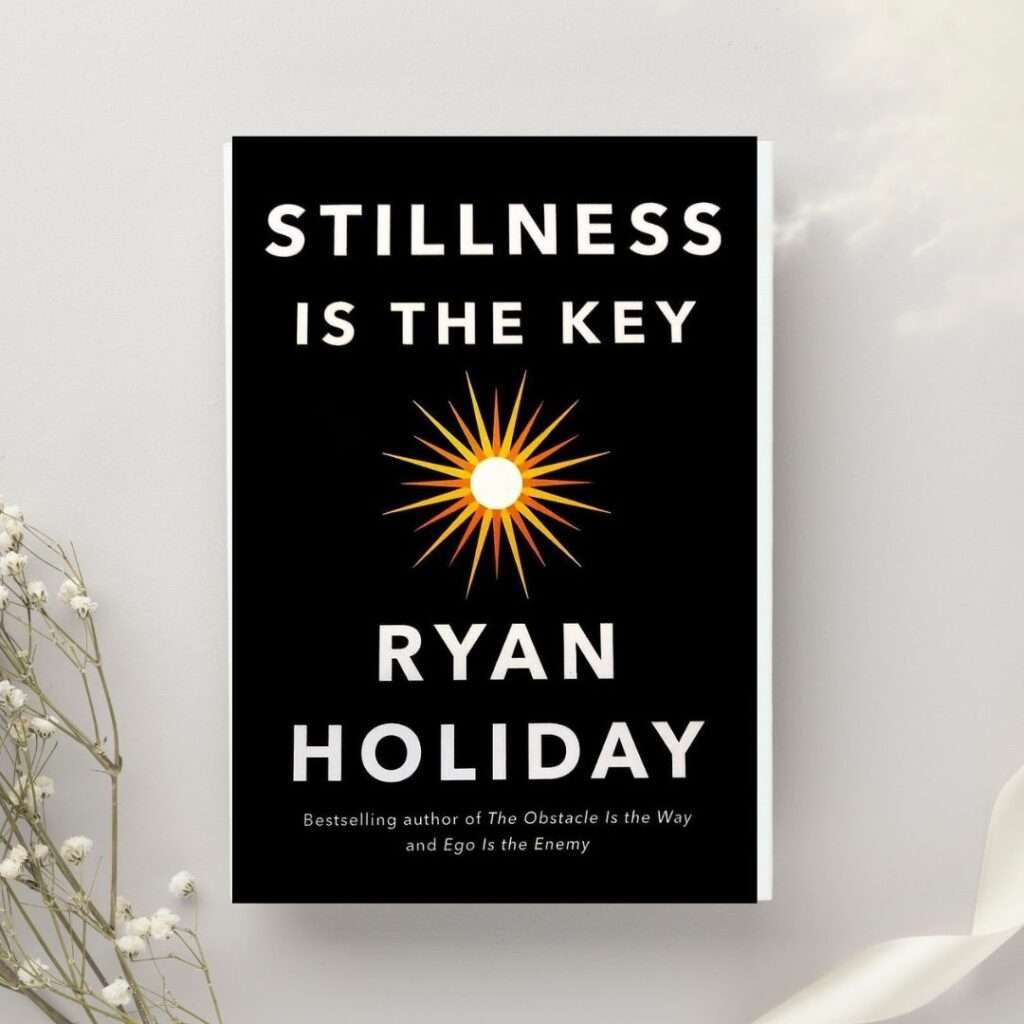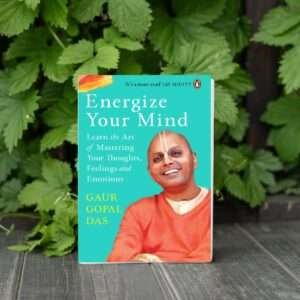Brief of Stillness is the Key
“Stillness is the Key” by Ryan Holiday is a book that explores the power of stillness and how it can be used to achieve success in all areas of life. The book is divided into three parts: “Stillness and the Stoics,” “Stillness in Action,” and “The Stillness Practice.”
In the first part of Stillness is the Key, Holiday draws on the teachings of the Stoics, an ancient philosophy, to explain the importance of stillness. He argues that stillness is not just the absence of noise and movement, but a state of mind that allows us to focus, think clearly and make better decisions. He also explains how stillness can be used to develop resilience, creativity, and wisdom.
The second part of Stillness is the Key focuses on the practical application of stillness in the modern world. Holiday provides examples and case studies of how successful people, such as entrepreneurs, artists, and athletes, have used stillness to achieve their goals. He also provides tips and strategies for incorporating stillness into one’s daily life and for using it to overcome obstacles and challenges.
The final part of the book provides guidance on how to develop a stillness practice. Holiday provides specific exercises and techniques for developing stillness, such as meditation, journaling, and mindfulness. He also provides tips on how to overcome common obstacles and challenges that people often face when trying to establish a consistent stillness practice.
One of the key takeaways from Stillness is the Key is the power of stillness in achieving success. Holiday argues that stillness allows us to focus, think clearly, and make better decisions. He also emphasizes the importance of stillness in developing resilience, creativity, and wisdom. He draws heavily on the teachings of Stoicism to support his arguments, which provide a historical and philosophical perspective on the subject.
Stillness is the Key is well-written and easy to read, with lots of practical tips and exercises that readers can use to develop stillness in their lives. The author’s use of examples and case studies from successful people makes the book both informative and inspiring.
The book is not only for those looking to improve their productivity but also for anyone looking to improve their overall well-being. The exercises and techniques provided in the book are not only about productivity but also about mental and emotional well-being.
One potential downside of the book is that the author’s approach may be seen as prescriptive, and some readers may find it difficult to follow the specific recommendations outlined in the book. However, readers are encouraged to take the principles and adapt them to fit their own needs and preferences.
Overall, “Stillness is the Key” is a valuable resource for anyone looking to incorporate stillness into their lives. The author provides a clear and actionable guide for developing stillness and is filled with practical tips and exercises that readers can use to improve their focus, decision-making, and overall well-being. The book is well-written, easy to read, and provides valuable insights that are supported by historical and philosophical perspectives.
10 Lessons from Stillness is the Key
- Stillness is not just the absence of noise and movement, but a state of mind that allows us to focus, think clearly, and make better decisions.
- Stillness can be used to develop resilience, creativity, and wisdom.
- Incorporating stillness into one’s daily life can improve productivity and help to overcome obstacles and challenges.
- Stillness can be achieved through different practices such as meditation, journaling, and mindfulness.
- Setting aside dedicated time for stillness practice is essential for achieving the benefits of stillness.
- Stillness practice can be customized to fit individual needs and preferences.
- Being aware and present in the moment is crucial for stillness practice.
- Overcoming distractions and temptations is an important part of stillness practice.
- Consistency is key to developing and maintaining a stillness practice.
- Stillness practice is not only about productivity but also about mental and emotional well-being.
About the Author
Ryan Holiday is an American author, marketer, and entrepreneur. He is best known for his books on strategy, marketing, and the human condition. He is the author of several bestselling books including “The Obstacle is the Way,” “Ego is the Enemy,” “The Daily Stoic,” and “Stillness is the Key.” He has written for several publications such as The New York Times, Wall Street Journal, and Forbes.
Holiday began his career as an assistant to Robert Greene, author of “The 48 Laws of Power.” He then went on to become the Director of Marketing at American Apparel at the age of 21. He has consulted for various companies and individuals, including Google, TASER, and Complex. He is also the founder of Brass Check Marketing, a creative agency that has helped many best-selling authors and thought leaders with their book marketing.
Holiday is also known for his interest in and study of Stoicism, an ancient philosophy, which often features in his books. He has been praised for his ability to take timeless wisdom and make it accessible and actionable for modern readers. His writing style is known for being straightforward, insightful, and practical.
Follow Reviewzade on Instagram for regular update. Check here for more book reviews.
Keywords: Stillness is the Key, Ryan Holiday, Stoicism, philosophy, self-help, productivity, personal development, mindfulness, meditation, journaling, focus, decision-making, resilience, creativity, wisdom, obstacles, challenges, consistency, mental and emotional well-being, modern readers, practical, strategy, marketing, human condition, bestselling author.





